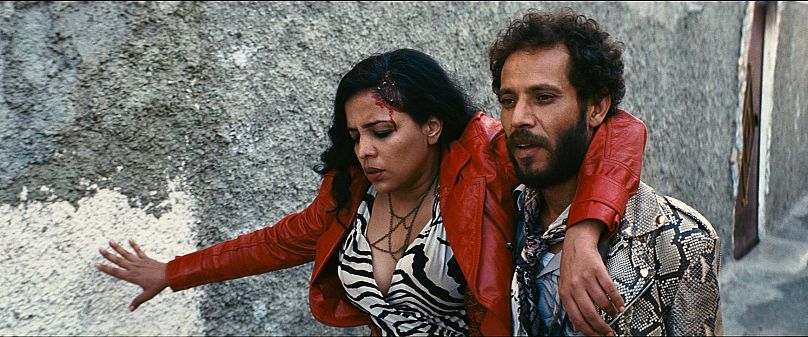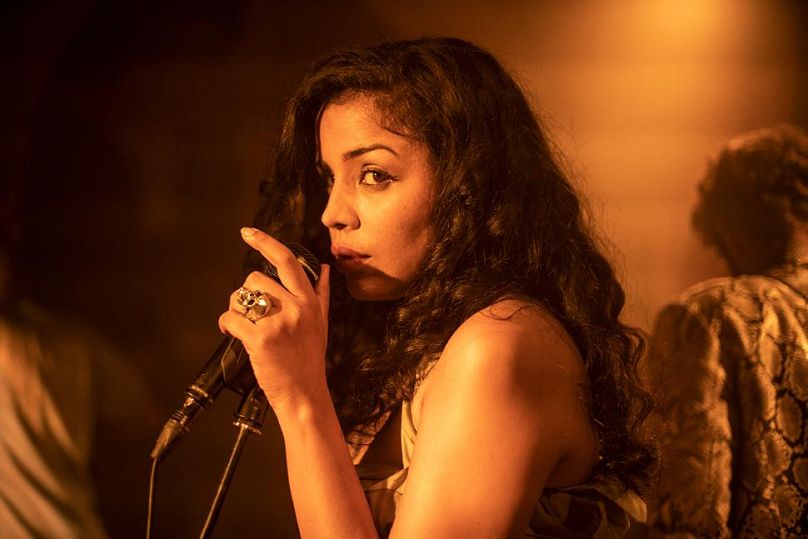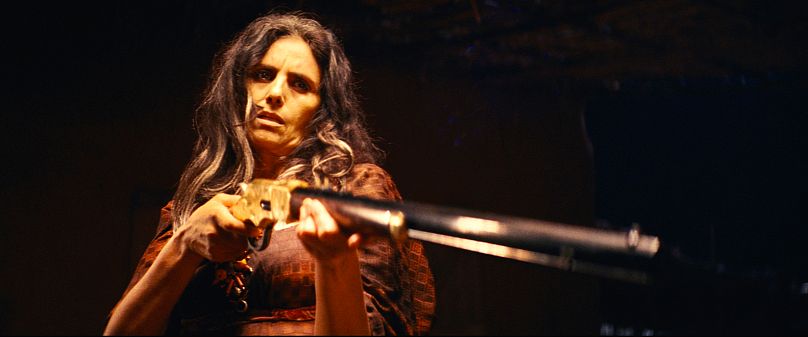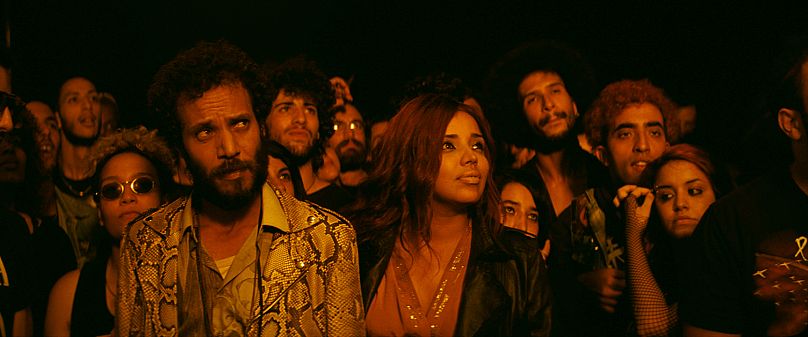Ismaël El Iraki's first feature film deals with the themes of trauma, survival and healing.
“You blame yourself, that these people are dead and you’re alive, and every time you mess something up, whatever makes you feel that your life doesn’t amount to much, you think about these people. Because they were so young, and you think about what they could have done in your stead.”
36-year-old Paris-based film director, Ismaël El Iraki, recalls his experience of surviving the Bataclan terrorist attack of November 2015 in Paris, in which 130 people were murdered at a concert he attended.
His first feature film, Zanka Contact, is based on what happened to him after the attack and has now been sold after winning an award last week at the prestigious Venice Film Festival.
Thinking back to 2015, the director explains that he left the Bataclan injured, but crucially, alive. “I thought I was dead for the first three days afterwards because someone killed the guy next to me and the girl on my other side. He shot me – twice – and he missed me.”
“Originally this movie was simply going to be about a guy who experiences a shoot-out at one of his concerts,” El Iraki continues.
“But as I went through behavioural EMDR therapy (Eye Movement Desensitization and Reprocessing therapy) to help with my trauma, I met a lot of victims of rape, abuse, aggression, a lot of people have the same symptoms and the problems I did. I realised that as humans, we all respond to trauma in the same way – but we also heal in the same way.
“At the beginning, I was trying to write about the process of healing, but I wanted to do it through my own lens, which is someone who survived a shooting. But I came to understand that subject was too close to the news, and it wasn’t going to work for people who wouldn’t be able to get away from the spectacular aspect of it. So, the movie is a love story between two other survivors.”
Set in Casablanca in Morocco, near the director’s place of birth, Zanka Contact is described as ‘a punk Romeo and Juliet’, a David Lynch-inspired romp between two star-crossed lovers, (played by Ahmed Hammoud and Khansa Batma) who share a traumatic past. The film is lightened by heavy metal concerts, bad cops and the odd venomous snake.
“The whole movie is about learning to deal with what’s happened to you and to talk about it,” he explains.
“It can take you years to recognise that you have a problem, that there’s something embedded in you, like a parasite, that should not live in you. But realising I wasn’t alone in my trauma, when I met all kinds of other survivors during my therapy – survivors of domestic abuse, rape, war, the military, as well as others from the Batalcan – that was my beacon of light.
“We are not alone in our journey, and that’s the story of my film. My hero and my heroine are both the victims of trauma – so now, how do they move from victims to survivors?”
Joy has come out of Ismaël’s own tragedy. The movie, made for under a million Euros, became the word-of-mouth audience hit of the Venice Film festival.
While he arrived at the event with no sales agent and no publicist for his first feature film, he left with a deal for Zanka Contact, while Khansa Batma received the Orizzonti Best Actress award. Receiving it on her behalf, El Iraki urged his audience, which included actress Cate Blanchett, to “take risks.”
“I actually have to pinch myself every morning,” he says.
“This was definitely a team effort in making the film, and I came to Venice with all of them. But apart from each other, we were alone and naked really, as we had no buyer for the film, no international sales representative, and no press agent. It’s just a miracle what’s happened. I’ve been stopped in the street, so have the actors, and the film composer, by people quoting lines and the song in the film.”
The filmmaker says he’s still triggered by certain situations.
“I hate fireworks,” he says. “I can’t deal with them. The slightest thing – like a tyre blowing – can take you away, and you’re no longer sitting in the sun, for example, but you’re back in the Bataclan. It happens to you for years afterwards and it’s a prison, but what you do have, is the liberation of speech. And the biggest step you take is to admit that you need help.”
Zanka Contact will now travel to other film festivals, including the BFI London Film Festival in October, and should secure a cinema release.
“In a time when risks aren’t being taken with cinema, this film got made and the risk has been rewarded, “he says.
“We only finished the film three days before we came to Venice. This is a dream, and the best thing for me is that we got to premiere it on a big screen, in front of a live cinema audience, exactly as it was intended to be. That happened in this Corona year, this year of all years, in 2020.”















